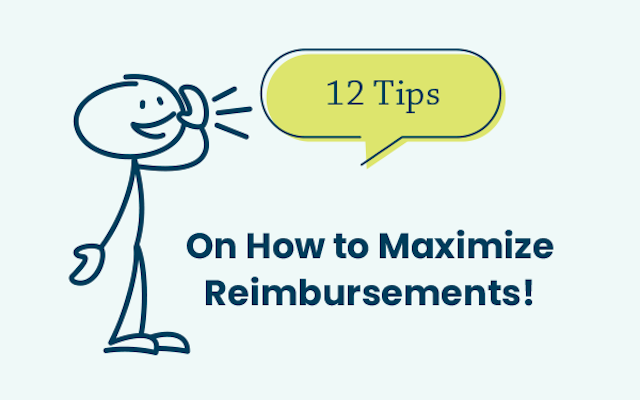Are you looking to build a new website? Many factors affect the cost of building a website for your dental practice. The nature of each dental practice and their website needs vary. Whether you're managing a multi-location practice or running a solo dentist's office, historically, these variables significantly impact your budget.
At YesGeorge, here's what we think is interesting: After our team spent a decade designing, managing, and optimizing over 430 dental practice websites, we felt a calling for change. Our upfront cost, more often than not, is $0, and our monthly fee starts at a reasonable $99/mo. Yes, you read that correctly – it's more in line with what 99% of solo practice dentists should be paying for their website – but probably aren’t.
But hold on, you might wonder, "How do we pull this off?"
I’ll tell you. This article unravels some of the critical elements that traditionally impact the cost of building a dental website. Now, I must clarify that this isn't an exhaustive list, but consider it a trusty resource when you're navigating the complex world of dental practice website needs and budgets.
1) Domain Name and Secure Hosting
Let's start with the basics: Your domain is your online address, and where you choose to register it, and your hosting can impact your budget.
Domain Registrar: You've got a bunch of options here. NameCheap, BlueHost, and Domain.com are some popular registrars. Each offers different packages and features, which means price variations and potential savings.
Top-level Domain (TLD): If you want to break from the traditional .com domain with a ".dental" or ".dentist" TLD, you’ll pay around $50/year, depending on your registrar. But you might have to dig deeper into your pockets if you're gunning for a high-demand ".com" or ".org" domain. For example, "manhattandentist.com" might set you back a cool $900, and "sfbaydentist.com" would cost you $1,899. Less in-demand .com or .org domains will only cost $10-15/year. What does this mean? Do your research and be creative.
Length of Commitment: Most registrars offer different pricing based on how long you commit. A longer commitment, like two years or more, will save you some extra cash.
Secure Hosting: This is crucial and non-negotiable. Ensure your hosting comes with a Transport Layer Security (TLS) certificate. It's that little padlock symbol in your browser that tells your patients that your website is a safe space. If you are asking for patient information through the website, this is an absolute must, and you may benefit from encrypted hosting and captchas on all your forms.
____________________________________________________________________________________
2) Website Functionality
Functionality is where the fun (for designers and strategists) begins. The more functions you want, historically, the more it will cost. However, many vendors have already built common functionality, negating the need for custom-built functionality. Here are some examples and the vendors that exist to solve these problems.
Contact Forms and Online Appointment Requests: These are the bread and butter of dental websites. Examples include a generic contact form or a patient appointment request form. Many dental clinics use these to collect information from patients and prospective patients. For example, vendors with free or low-cost services like Gravity Forms, WPForms, or even Google Forms for simple contact forms, typically installed to serve this purpose.
Email Forwarding: When someone fills out a form on your site, you want those inquiries in your inbox pronto. Most of the form vendors mentioned above will have this functionality built-in. Otherwise, a service like Zapier will help connect a form submission to common email providers: Google Workspace, Microsoft Outlook, etc.
Accessibility (for those with visual impairment): Meeting WCAG accessibility guidelines is a must for any small business operating in the U.S. This both helps make the Internet a more accessible place while also reducing exposure in lawsuits. Example accessibility compliance vendors include Companies like AccessiBe, EqualWeb, and UserWay, which specialize in making websites accessible and can be integrated into your website - regardless of the technology you use!
Data Policy Compliance: Staying compliant with data policies, like CCPA in California, is crucial if you operate in the U.S. Example data compliance vendors include Osano, OneTrust, and CookieBot, which offer services to help you stay on the right side of ever-changing and evolving data privacy laws.
Integrated Scheduling: Take appointment requests a step further. Let your patients schedule a slot on your calendar directly from your website. Example vendors include Calendly, Acuity, NexHealth, and Weave, which are good options for this feature.
Patient Intake Forms: Streamline information collection with customized web forms or download PDF forms. Example vendors include Services like Typeform, JotForm, Formstack, or even Adobe Acrobat for PDF forms. If you're handling sensitive data, ensure the software partner is HIPAA-compliant.
Collect Patient Payments: Some practices prefer to collect payments directly on their websites. This option is ideal for those practices serving modern consumers who expect online bill pay. Examples of online payment solution providers include Stripe, Square, Ayden, Braintree, and PayPal.
____________________________________________________________________________________
3) Website Maintenance and Upkeep
Don't forget that your website needs constant TLC to keep up with the competition and remain up to consumer expectations. A website is not a one-time, “set it and forget it” project. It often is treated this way - but it really shouldn’t be. Here's what's on the maintenance menu:
Continual Optimization: Keeping up with SEO, modern design standards, patient conversion, and accessibility best practices is a never-ending task.
Refreshing Website Content: Update your site with new info, employee changes, revised hours, and more.
Monitoring Analytics: An eye should be kept on your site's performance to seize opportunities or spot issues.
Regular Testing: Don't let your forms or other functionality break. Regular testing (ideally automated) is a must.
Troubleshooting: When issues arise, someone needs to tackle them swiftly.
Regular Backups: Don't forget to back up your website. You don't want to lose everything if the worst happens.
It's common for agencies to provide a set number of "change request" hours each month before charging an hourly rate, which can range from $35 to $100 for additional hours. This range varies based on where their contractors or employees are based. If you can access the website’s CMS, you (or someone on your team) could handle these changes yourself.
____________________________________________________________________________________
4) Number of Pages on Your Dental Website
The size of your website plays a role in costs. More pages mean more work. Here's a rough estimate you can expect from an agency to launch (or relaunch) a website broken down by page size:
1 to 7 pages: $1,500 to $3,000
8 to 16 pages: $4,000 to $6,000
20 to 75 pages: $8,000 to $15,000
Now, the right questions are: “What role does each page play?” “What is the value of each page?” and most importantly, “Do you need all these pages?”
But remember the approach your agency or developer takes – whether they use turnkey templates, slightly personalize them, or go for significant customization. That can impact the final price tag.
____________________________________________________________________________________
5) Website Hosting Platform: Shared vs. Dedicated Hosting
Choosing the right hosting platform is crucial. Shared web hosting is the most popular type of hosting service. This type of service uses a single server to host many websites. This helps keep the cost low without sacrificing quality or reliability. Now, why would you need a dedicated server? If your practice sees heavy traffic (20K+ visits per month), this may be the way to go, as you won’t have to worry about other websites clogging up the server’s CPU or RAM. With a dedicated server, bandwidth usage won’t slow your website down.
____________________________________________________________________________________
Closing Thoughts: Your Path to a More Cost-Effective Dental Website
By considering these factors and making informed choices, you can build a dental website that meets your practice's specific needs while staying within your budget. At Yes George, we've simplified the process to offer affordable and effective dental websites starting at just $99 per month, making it more accessible to solo practice dentists. So, when you embark on your dental website journey, remember that cost-effective solutions are available without compromising functionality or security.
 By:
By: 



